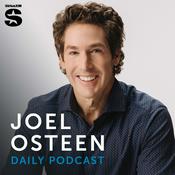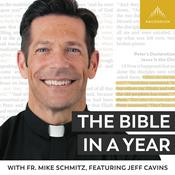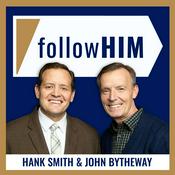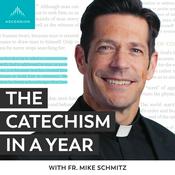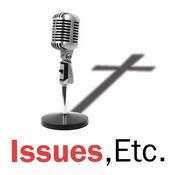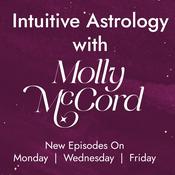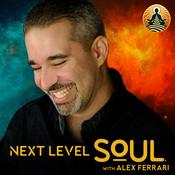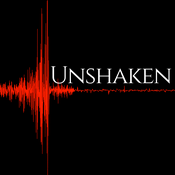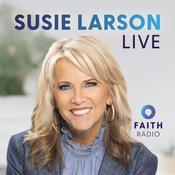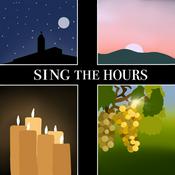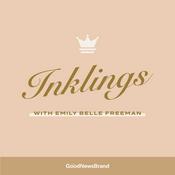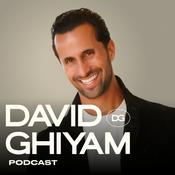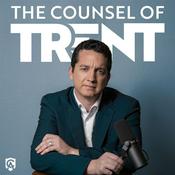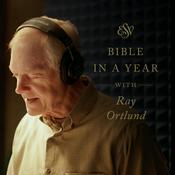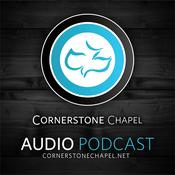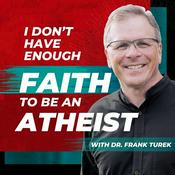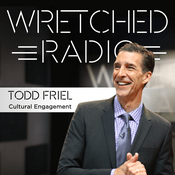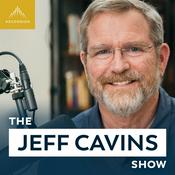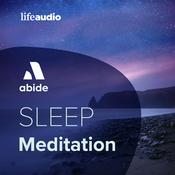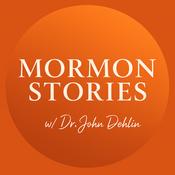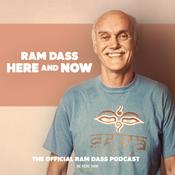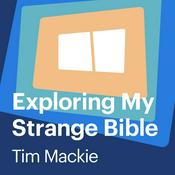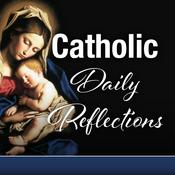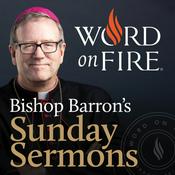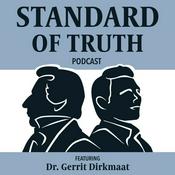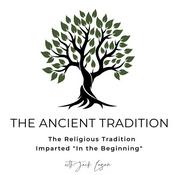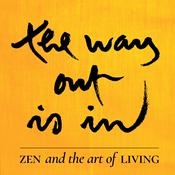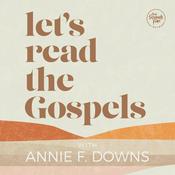Making Sense of Faith with Adam Hamilton
Adam Hamilton
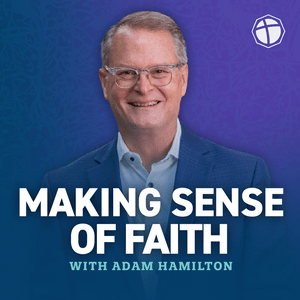
Latest episode
52 episodes
Religion and Politics: The Dangerous Myth That Religion and Politics Don't Mix
1/23/2026 | 1h 5 mins.Should your faith shape your politics? In this candid episode, Adam Hamilton challenges the myth that religion and politics don't mix—and explains why staying silent on justice issues might actually contradict the teachings of Jesus.Drawing from a controversial sermon on immigration enforcement and political division, Adam shares powerful stories of fear in immigrant communities, explores the concept of "just laws" versus "just enforcement," and offers a framework for how Christians can engage politically without losing their humanity or dividing their communities.You'll discover why empathy is both the most important and most difficult practice in polarized times, how to protest in ways that reflect your values, and what it means to live out the prayer "thy kingdom come, thy will be done on earth" in concrete, everyday ways.Whether you're deeply involved in politics or trying to stay above the fray, this episode offers a thoughtful path forward for people of faith navigating America's deepest divisions.- Ever wondered what goes into a message that reaches the largest audience of the year? Adam Hamilton pulls back the curtain on his 36th Christmas Eve at Church of the Resurrection, revealing nine drafts, 30+ hours of research, and a stunning historical discovery at 2:20 in the morning that changed everything.The beloved Christmas carol "O Holy Night" wasn't just a pretty song. In 1855 Boston, it became an anthem of the abolitionist movement, inspiring Christians to give up everything and travel to Kansas to claim it as a free state. The line "chains shall he break, for the slave is our brother" moved people to action, and Adam discovered these faithful abolitionists passed directly across the land where his church now sits.In this special behind-the-scenes episode, Adam walks through his creative process: why he rewrote the sermon after preaching it the first time, how he adapted it for 2,000 kids on Christmas morning, and what it takes to keep a 2,000-year-old story compelling after nearly four decades of Christmas Eves. From "Home Alone" clips to trail maps to his own family's Super 8 films from 1967, see how one pastor weaves history, personal story, and a simple call to "love one another" into a message that moved people to give $2.3 million to families in poverty.Whether you're curious about the craft of communication, fascinated by hidden history, or simply wondering what happens behind the scenes of the biggest night in the church year, this episode offers rare insight into how faith and creativity collide.In this episode:- Why Christmas Eve is the most challenging message of the year- The abolitionist history hidden in "O Holy Night"- How Adam discovered his church sits on an Underground Railroad route- What it takes to preach the same story fresh for 36 years- The moment at 2 AM when everything came togetherThe episode includes the full 7:00 PM Christmas Eve service, featuring Dr. Cameron Smith's stunning performance of "O Holy Night."
- What if a simple Google ad could lead you to save a stranger's life? In this powerful episode, Adam Hamilton sits down with Jeff Reisinger, a Church of the Resurrection member who became a living liver donor, and Dr. Sean Kumer, Chief Medical Officer at the University of Kansas Health System, to explore the remarkable journey of organ donation—from that first unexpected popup ad to the moment two families were forever changed.Jeff's story begins with an unusual series of "coincidences": a persistent advertisement, a Christmas Eve phone call, and a match with another Jeff whose son shares his own son's name. But as you'll hear, these weren't coincidences at all—they were part of something much bigger.In this episode, you'll discover:- How living liver donation works and why your liver regenerates after donation- The difference between kidney and liver donation, and what recovery looks like- Why there are over 100,000 people waiting for organ transplants in the US- How faith can lead to radical acts of selfless love- Practical steps you can take to become a living donorThis isn't just a medical story. It's a profound exploration of what it means to love your neighbor in the most tangible way possible. Whether you're considering becoming a donor, curious about the medical process, or simply looking for an inspiring story of faith in action, this episode will move you.Resources mentioned:- University of Kansas Health System Transplant Center: (913) 588-6183- HRSA (Health Resources & Services Administration): hrsa.gov- Gift of Life donation awarenessThis episode could save lives. If you know someone who might be interested in organ donation—or anyone who needs hope that extraordinary goodness still exists in this world—please share this with them.
- In a world where news feels overwhelming and every headline seems designed to trigger an emotional response, how do we stay informed without losing our peace—or our ability to love people we disagree with?Critical Thinking as Spiritual Practice Adam explains why Jesus's command to love God with our minds is more relevant than ever. When Jesus said we should love God with heart, soul, and mind, he used the Greek word "dianoia"—which can be translated as "critical thinking." This isn't just intellectual exercise; it's a spiritual discipline that helps us guard our hearts from hatred while engaging thoughtfully with the world around us. Whether it's evaluating news sources or listening to a friend share gossip, critical thinking asks us to slow down and seek the whole truth before responding.The Manipulation Machine: Understanding Modern News News has fundamentally changed from Adam's childhood, when it aired at specific times and aimed for balance. Today's 24/7 news cycle combined with social media algorithms has created what Adam calls a "manipulation machine"—headlines designed as clickbait, stories that confirm our existing biases, and coverage that prioritizes emotional reaction over comprehensive understanding. Adam shares his own struggle with news addiction, describing the unhealthy pattern of "doom scrolling" before bed and checking multiple news apps throughout the day. The first step toward healthier news consumption is recognizing how we're being manipulated.Multiple Sources, Multiple Perspectives Adam's practical approach includes subscribing to news sources across the political spectrum—New York Times, Wall Street Journal, Fox News, CNN, and MSNBC. When a story triggers a strong emotional response, he intentionally seeks out how it's being covered from different angles. This isn't about moral relativism or saying all perspectives are equally valid; it's about gathering enough information to form thoughtful conclusions rather than reactive ones. Adam notes that often the most salacious headline is followed by a much more mundane story, and taking time to read beyond the headline changes everything.From Information to Transformation: Guarding Your Heart Perhaps the most powerful insight Adam shares is about the danger of allowing news consumption to lead to hatred. He references Holocaust survivor Sonia Walorski, who said "I will not hate" even after losing her family to the Nazis. Adam emphasizes that Christians can take strong stands against injustice and wrong actions while still loving the people on the other side. This requires intentional work—trying to understand others' motivations, being curious about their perspectives, and remembering that we're called to "agape" love, which means wishing the best for others even when we disagree with them.Pause and Think Before You Post Adam shares a vulnerable story about posting too quickly after a public figure's assassination, having to revisit his words after feedback from a respected church member. His key advice: slow down. Wait before posting on social media. Do more fact-checking. Try to understand the other perspective. This discipline of pausing creates space for wisdom instead of reaction, for love instead of hatred, for truth instead of propaganda. In a culture that rewards instant responses, choosing to slow down is a countercultural—and deeply Christian—practice.
- Adam Hamilton tackles one of the most pressing questions facing modern spirituality: Do we really need church? With trademark honesty, Adam acknowledges the hurt and disillusionment many people feel about organized religion... and then makes a compelling, research-backed case for why faith community might be exactly what we're missing. Drawing from his own journey from teenage atheist to pastor of the largest United Methodist church in the country, Adam shares both hard data and heartfelt stories that reveal the transformative power of showing up, belonging, and being carried by others when life gets hard.Insights from This Episode:Church attendance could add 7 years to your life. Multiple Harvard studies show that people who attend religious services at least weekly live significantly longer... with mortality rates 25-35% lower over 10-15 years. Adam breaks down why this isn't just about faith, but about the social capital, support systems, and “stretcher bearers” we all desperately need.Mental health and faith community are deeply connected. The American Psychiatric Association reports that 6 in 10 Americans say faith supports their mental wellness, and those actively involved in faith communities show 20-30% lower rates of depression and up to six times lower rates of suicide. In an age of increasing isolation, these numbers tell a story we can't afford to ignore.Churches are volunteer engines that power communities. Here's a stat that might surprise you: 58% of people actively involved in church also volunteer in other community organizations. Adam explores why researchers are raising alarms about what happens to our communities if church attendance continues to decline... where will the volunteers come from?You don't have to claim the worst examples of Christianity. When people say, "I'm a follower of Jesus, not a Christian," Adam pushes back with wisdom: If you let the Christians who get it wrong claim the title while you abandon it, then those are the only Christians people will know. Be the different kind of Christian the world needs to see.If you've ever wondered whether church is worth it, or if you've been hurt by church and aren't sure you can go back, this episode offers a fresh perspective that doesn't require you to check your brain at the door. Adam invites both skeptics and longtime believers into an honest conversation about why gathering together still matters, backed by science and lived experience. Whether you're spiritual but not religious, nominally religious but not active, or somewhere in between, this episode might just change how you think about community, belonging, and what it means to truly thrive.
More Religion & Spirituality podcasts
Trending Religion & Spirituality podcasts
About Making Sense of Faith with Adam Hamilton
Making Sense of Faith isn't your typical religious podcast. Join Adam Hamilton, bestselling author, speaker, and pastor, as he tackles life's biggest questions with intellectual depth and genuine compassion without asking you to check your brain at the door. Drawing from his experience as an author, speaker, and pastor with decades of conversations asking questions about faith, Adam explores faith that's both deeply rooted and forward-thinking. Here, doubt isn't the opposite of faith—it's part of the journey.
Podcast websiteListen to Making Sense of Faith with Adam Hamilton, Unashamed with the Robertson Family and many other podcasts from around the world with the radio.net app

Get the free radio.net app
- Stations and podcasts to bookmark
- Stream via Wi-Fi or Bluetooth
- Supports Carplay & Android Auto
- Many other app features
Get the free radio.net app
- Stations and podcasts to bookmark
- Stream via Wi-Fi or Bluetooth
- Supports Carplay & Android Auto
- Many other app features


Making Sense of Faith with Adam Hamilton
Scan code,
download the app,
start listening.
download the app,
start listening.


